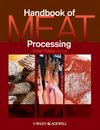When a job is not a career
I just returned Barbara Taylor Bradford’s newest novel dealing with her “Emma Hart” saga to my local library. A human resource director, one of the novel’s characters, hit a nerve as I listened to the story unfold by reminding me of a couple of my past job experiences. It is painful to be subjected to the nebulous viewpoint of somebody who has no clue about your talent range and, moreover, starts on a sabotage campaign.
Although dignity and respect begin with a job candidate's own self esteem, a sick workplace can erode those feelings — big time. |
In the novel, the HR’s initial assessment of a job candidate had little to do with the woman’s outstanding resumé. There was something about the candidate that “just didn’t feel right.” Years ago, a former editor advised me to find a new profession, as he didn’t “feel” I had the stuff of a hard-hitting reporter —this after receiving several journalism awards to my credit. What’s more I looked up to the guy. Life’s lessons are infinite, to be sure. This one taught me to never allow somebody else to define me or kill my dreams.



Report Abusive Comment